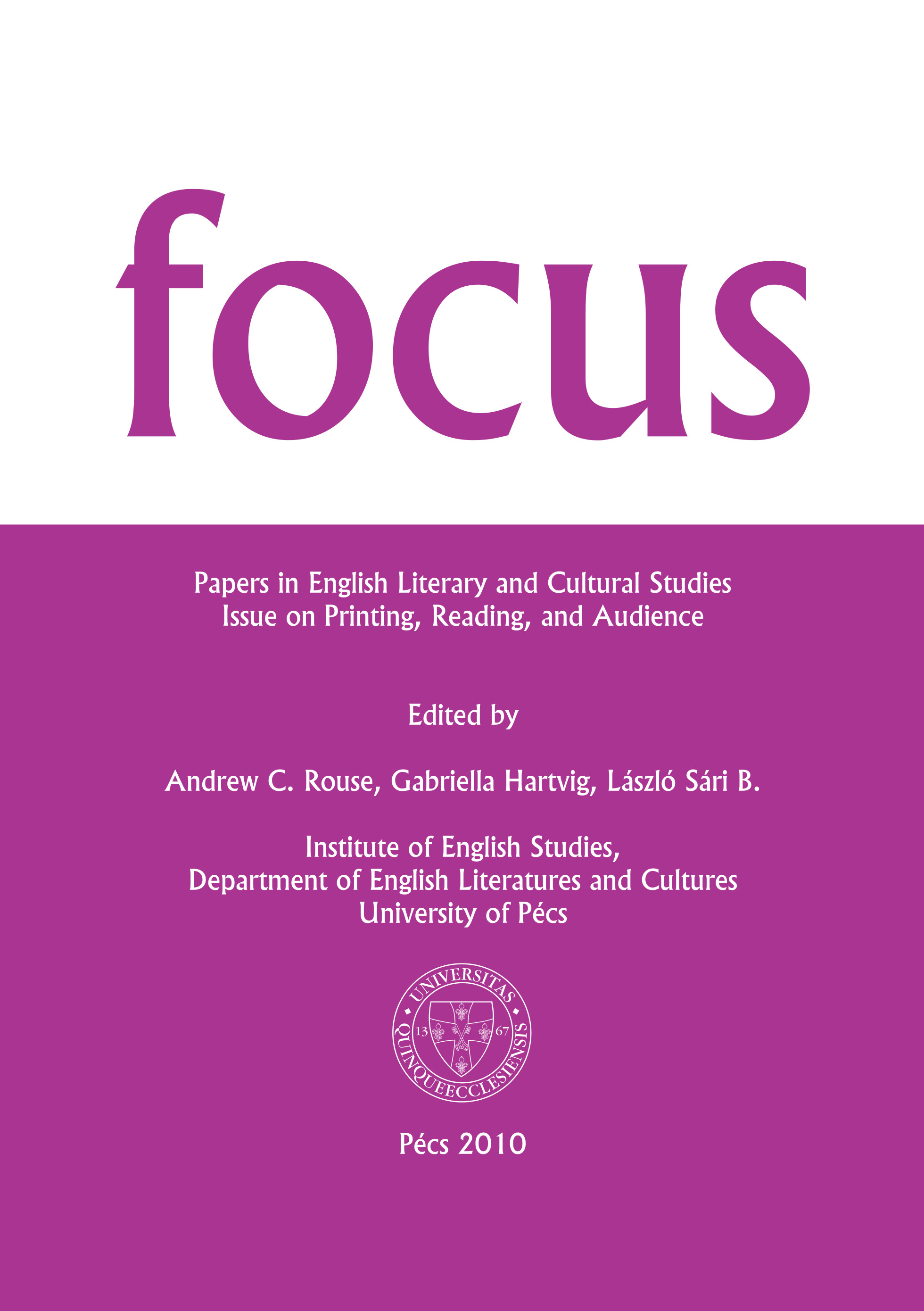The Performance of Romantic Criticism: S. T. Coleridge in the Lecture Theatre
Abstract
For anyone wanting to collect evidence for Coleridge’s anti-theatrical sentiment, his lectures on Shakespeare, delivered between 1808 and 1819, would be a good place to start. According to the Bristol Gazette, for instance, he asserted on one occasion that “he never saw any of Shakespeare’s plays performed, but with a degree of pain, disgust, and indignation” (Lectures 1: 563). Coleridge went on to list external causes that he thought responsible for his discontent, such as “the enormous size and monopoly of the theatres” which produced “many bad and but few good actors.” On another occasion, he “in the warmest language, censured those who had attempted to alter the works of Shakespeare, in order to accommodate him to modern ears” (Lectures 1: 254). The staging of adaptations was only the most obvious way of losing touch with the “real” Shakespeare; similarly harmful was the practice of neglecting inferior characters, “thro’ which our poet shone no less conspicuously & brightly” (Lectures 1: 254), while concentrating wholly on the protagonists. According to the critic Julie Carlson, the nineteenth-century star system, which was behind this phenomenon, was especially disconcerting for Coleridge, because it could lead to a few star actors and, even worse, actresses, outshining Shakespeare, their bodily presence becoming more emphatic than the text that was supposed to sustain them (20). Coleridge ruefully remarked that “those who went to the Theatre in our own day, when any of our poet’s works were represented, went to see Mr Kemble in Macbeth,―or Mrs Siddons’ Isabel” or, even worse, “to hear speeches usurped by fellows who owed their very elevation to dexterity in snuffling candles” (Lectures 1: 254, emphasis in the original). In such circumstances Coleridge considered it fortunate that Shakespeare was not performed more often, for thus he could “find his proper place, in the heart and in the closet” (Lectures 1: 563).
Downloads
Published
How to Cite
Issue
Section
License

This work is licensed under a Creative Commons Attribution-NonCommercial-NoDerivatives 4.0 International License.
FOCUS: Papers in English Literary and Cultural Studies follows the principles laid down by Creative Commons, which provides guarantees for the Author’s copyright while also ensuring that intellectual properties are made available for the wider public in a digital form. All papers submitted to the journal apply the following licence conditions (indicated on the journal’s website as well as in individual publications):
“© This work is licensed under a Creative Commons Attribution-NonCommercial-NoDerivatives 4.0 International License.”
You are free to:
- Share, copy and redistribute the material included in the journal in any medium or format under the following terms:
- Attribution — You must give appropriate credit to the Author, and indicate the original place of publication [FOCUS: Papers in English Literary and Cultural Studies, Issue nr., page numbers.].
- NonCommercial — You may not use the material for commercial purposes.
- NoDerivatives — You are not allowed to remix, transform, or build upon the material.
- The above conditions must always be indicated if the journal material is distributed in any form.
- The above conditions must always be met, unless a written permission signed by the Author and the Editor-in-Chief states otherwise.

